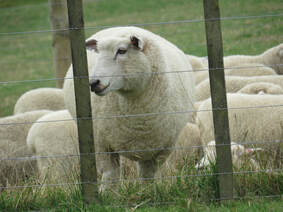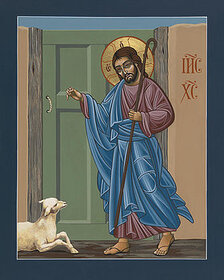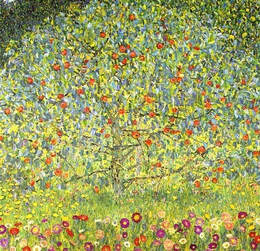 Bovines are mentioned numerous times throughout both Testaments in the Bible with most of the passages involving sheep and lambs, and a few specifically referencing goats. Most often sheep are portrayed in a positive light, such as in the parable Jesus told about the 100 sheep minus the one that wandered off, highlighting the great value of the lost sheep. But in other passages there are negative connotations about these animals with the implication that since sheep are rather stupid, (which they actually aren’t), they need to be shepherded wisely so that they do not go astray. A notable reference is in the “Judgment of the Nations” (Matthew 25:31-46) when Jesus said the sheep, representing the faithful people who loved selflessly, will be gathered at His right side (the blessing side) and the goats, those who do not love as they ought, will be on His left, implying they have been found wanting.* Indeed, humans are capable of making both good and bad choices, so that is why sheep and goats on His left and right were an apt example. However, let us remember that an important sheep reference was also applied to Jesus by John the Baptist when he pointed to Him while crying out, “Behold, the Lamb of God!”  John’s announcement indicated that Jesus is the Lamb who will be sacrificed as atonement for our sins like the Passover lamb of the Exodus which was a sign of liberation from slavery (Ex. 12:1-20), but that Jesus is far greater: Jesus is the Son of God who chooses to die out of love for us, and then will rise victoriously, liberating us from slavery to sin and death. Today, the reference to Jesus as the Lamb of God is most prominent in the liturgy. During the Communion Rite the priest elevates the consecrated host and says, “Behold the Lamb of God….Blessed are those called to the supper of the Lamb.” This proclamation is filled with great meaning. The word ‘blessed,’ used in the Beatitudes (Mt. 5:1-10) also means ‘happy’ or ‘holy.’ So now hear the priest’s words in another way: ‘happy are those called to the supper of the Lamb.’ And finally, reflect upon it this way: ‘Holy are those called to the supper of the Lamb.’ Do we often consider that this invitation to adore before we consume the Eucharist is implying that the Lamb of God is for His holy ones? Remember the ‘universal call to holiness’ which basically means that we were created to be holy, and through Baptism we are given what we need so that we might grow in that way. Thus, we are holy ground.** The Eucharist, then, is for those who are called to be holy, and simultaneously helps our growth in holiness. With this is mind, immediately after the priest elevates the consecrated host, we petition God to heal us of our sins so that we may truly be fitting recipients of this great gift. We say we are not worthy. No, we are not, but that is precisely why Jesus offers Himself to us: His loving presence makes us truly holy ground.  Finally, we need to consider how we envision ourselves. We are not lowly. When Jesus took on our humanity, the Son of God did lower Himself to become one of us, but not in the sense that He somehow sullied His divinity, ‘holding His nose’ when He did so. Rather, He lowered Himself in the sense that the Immortal Almighty One took on our brokenness. Again, we are not lowly: God created us as the apple of His eye, the beloved of His heart whom He never ceases to love. The Psalmist says He made us “little less than the angels, and crowned with glory,” (Psalm 8:6); and again, “We are fearfully, wonderfully made.” (Psalm 139:14) If we were nothing but ‘lowly sheep,’ why would God have bothered saving us? He did so because we are absolutely precious to Him: His love is beyond anything we deserve or can comprehend. Thus, it would be good to reflect upon the words of the priest when he elevates the consecrated host and says, “Behold the Lamb of God.” Every time we hear these words we are invited to respond by acknowledging with gratitude that we are so richly blessed by the Eucharist, that we are invited to the happiness of entering into the inner life of the Lord through our prayer, and that this is part of what we absolutely need to become holy. (John 6:53) The Lamb of God brings us blessing, happiness, and holiness. Without Jesus coming into the world, without John the Baptizer identifying Him to his followers, and subsequently without Jesus offering Himself for us and given to us in bread and wine, we would indeed be lost like sheep without a shepherd.  No, God did not lower Himself to us as if to something vile; rather, He wants to raise us up to Himself, to something glorious. In other words, God wants to make us holier, He wants us to shine in the way He always intended. If we ‘fill ourselves’ with the Body and Blood of Christ as often as possible, we will in fact be cooperating with His intention. When we finally enter Heaven at the appointed time, we will be able to stand around the banquet table of the Lord and hear: “Behold the Lamb of God!” Then we will see Him as He is and we will be seen as we are, made holy through His Body and Blood. And we will respond with glad cries of “Alleluia! Alleluia! All glory to the Lamb who has conquered sin and death! Alleluia!” May we receive the gift of the Eucharist with gratitude and joy! May we fill ourselves with Body, Blood, Soul, and Divinity of Christ as often as possible! And may we indeed one day behold the Lamb of God! Let us meet in the Heart of Jesus! Peace! ©Michele L. Catanese Notes: *Many ancient peoples, including the Jews, believed a superstition that the right side was the side of blessing and the left side was the side of cursing. As a result, everything from writing to drawing a sword from one’s belt had to be done with the right hand or it was considered cursed. Thus, in Jesus’ teaching metaphor, the sheep were to be gathered on His right and the goats on His left. **The universal call to holiness is a teaching found in chapter 5 of Lumen Gentium, (a document from Vatican II). You can find the document at https://www.vatican.va/archive/hist_councils/ii_vatican_council/documents/vat-ii_const_19641121_lumen-gentium_en.html Images: 1. My photo, sheep grazing, taken in Matamata (in the north island), New Zealand. 2. Icon, El Buen Pastor, by Fr. William Hart McNichols. We must remember that Jesus is both Lamb of God and Good Shepherd. You can find this at fineartamerica.com/featured/el-buen-pastor-188-william-hart-mcnichols.html 3. Painting, Apple Tree 1, Gustav Klimt. (1912) We are the apple of God's eye: Psalm 17:8, Zechariah 2:8 4. Photo of a star cluster. (NASA) Note: In compliance with GDPR rules, I wish to make it clear that I do not gather any information on any of my readers at any time.
Elise Campana
8/23/2021 10:51:59 am
That wa a beautiful teaching on the Lamb of God. I pray to be able to get someone to bring me to mass weekly to receive Eucharist.
Evelyn Cambria
8/23/2021 07:19:38 pm
Beautifully written. We are so blessed to have the body, blood, soul and divinity of our Lord available to us. Thank you for reminding us. Comments are closed.
|
Heart Speaks to Heart
|

 RSS Feed
RSS Feed

